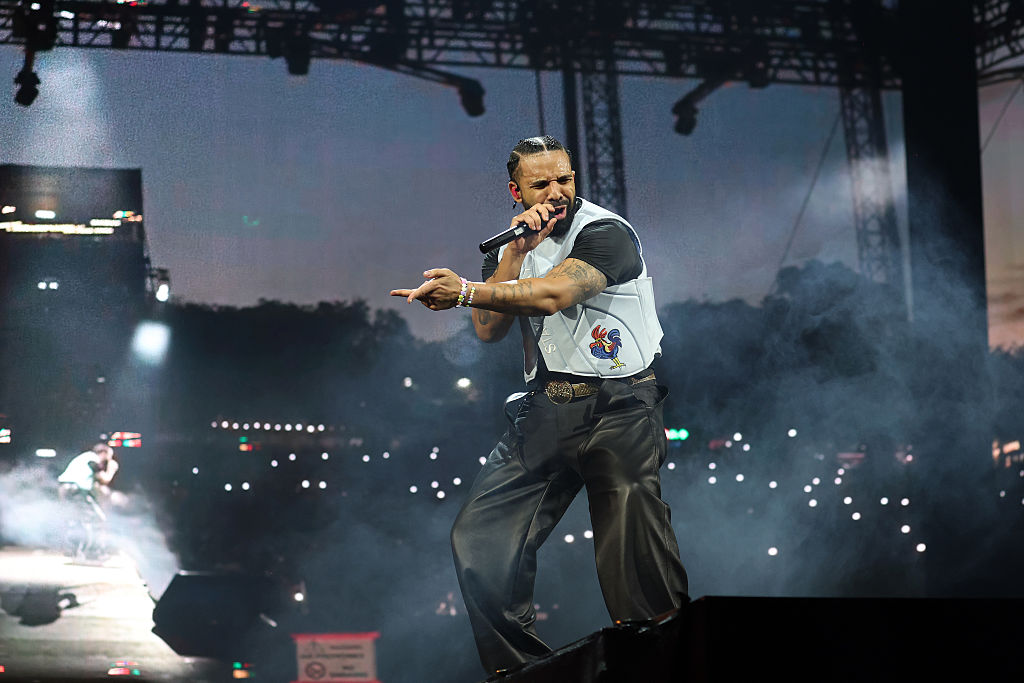It’s completely reasonable to assume that as most musicians age, transitioning from fresh-faced wunderkinder into round-the-block vets, their youthful quirks, energy and antics would start to mellow — a byproduct of mental middle age.
But not so for the Chinese piano sensation Lang Lang. If the 43-year-old proved one thing in his return to the Toronto Symphony Orchestra on Wednesday night, it’s that he’s still every bit the hair-flipping, foot-stomping showman who burst onto the stage all those years ago as a teenager, injecting his pop star personality into a classical scene known to be stuffy and staid.
Lang’s signature flamboyance has polarized critics, made him a crowd favourite in concert halls around the world, and netted him partnerships with car companies (Audi), luxury pen makers (Montblanc) and piano makers. (Yes, Steinway even has a piano named after him.) And this flamboyancy was on full display in Lang’s fiery interpretation of Beethoven’s “Emperor Concerto” at Roy Thomson Hall.
Listening to Lang live is a bit like watching an Olympic figure skater at the top of his game. The technical proficiency is a given. Yet you also never know what flashy surprises lie in store.
Perhaps you might find your heart skipping a beat as you hear Lang navigate one of the concerto’s many thrilling runs in its first movement, his agile hands fluttering over the keys so quickly that your vision blurs.
Lang plays on a knife’s edge. He stretches and compresses the melody to his fancy, like a figure skater executing a quad axel, only to add some unexpected flourishes mid-rotation. Surely, he can’t land this, you think. But Lang does each time — with a graceful, cathartic release.
At times, Lang’s interpretation raised eyebrows. The occasional accent felt awkward and misplaced. Some of this ostentation also came at the expense of musical phrasing and was most pronounced in the piece’s second movement, a nocturne. The right hand plays a descending, single-note melody. It should fall, like round raindrops, with a fatalistic sense of inevitability. But Lang squashed this melodic line into a bland monotony.
The TSO, under the direction of conductor Gustavo Gimeno, mostly chose to get out of Lang’s way. But this sometimes proved problematic. In the opening movement, it sounded to my ear as if the orchestra was struggling to keep up as Lang pushed and pulled the tempi.
It wasn’t until the final movement that it felt like Lang and the orchestra were completely in sync. The pianist, leaning into his instrument centre stage, attacked the “Rondo: Allegro” with gusto. He played his solo lines with a hefty yet springy bounce, crescendoing toward punchy climaxes.
Meanwhile, Gimeno and the orchestra matched this style perfectly: the lower strings, in particular, providing a muscly accompaniment.
Throughout, Lang still had time to show off. While his right foot pumped the pedal, his left would stomp on the floor. Every so often, his arms would ricochet off the keys, as if reaching toward the ceiling. Even his hair, parted to the left like a K-pop star, seemed to spring in unison with the music.
Love or loathe these habits, there’s no denying that Lang makes every piece he plays his own, both visually and sonically. It’s just somewhat ironic that he’s doing it with this particular concerto, which offers significantly less creative licence to soloists than the ones that came before it.
In “Emperor,” Beethoven more or less did away with the traditional cadenza (essentially extended passages where the soloist can improvise). At the end of the first movement, the composer writes in the score: “Do not play a cadenza, but immediately proceed to the following.”
For Lang, however, that was no matter. Beethoven may have stripped him of a cadenza, but the Chinese superstar still managed to put his own spin on the material. After all, as the TSO notes in the program’s title, this wasn’t so much a Beethoven concerto as it was “Lang Lang’s ‘Emperor.’”
Wednesday’s 90-minute gala concert, in support of the TSO’s education and community engagement programs, started with Paul Dukas’s symphonic poem, “The Sorcerer’s Apprentice,” based on the poem of the same name by Goethe and perhaps best known for appearing in Disney’s 1940 animated film “Fantasia.”
It begins with a shimmering, ethereal dreamscape, led by the harp and flutes, before transitioning into a whirling tempest, with the strings playing a series of biting chords. The orchestra offered a dramatic interpretation of the piece, vividly setting the scene of a bumbling sorcerer’s apprentice who tries, and fails, to conjure one of his master’s spells.
After his concerto, and a sustained ovation, Lang played as his encore Stephen Walford’s silly and lighthearted arrangement of “Who’s Afraid of the Big Bad Wolf?” from the Disney animated short “Three Little Pigs.”
But it wouldn’t be a Lang Lang concert if he didn’t have another surprise in store. Indeed, the program concluded with yet another encore. But this time, Lang ceded the stage to 15-year-old Ryan Huang, the star pianist’s Toronto protégé and a Lang Lang Young Scholar.
It was a kind gesture by Lang, one of the most generous and philanthropic classical musicians today, and one completely appropriate for an event meant to celebrate — and raise funds for — music education.
So Huang concluded with the virtuosic showpiece “The Serpent’s Kiss,” by William Bolcom, a fun, chameleonic composition with hints of ragtime syncopation. With this encore, Huang proved that he’s a rising talent to watch. And he possesses a flashy persona akin to Lang’s, to boot.



